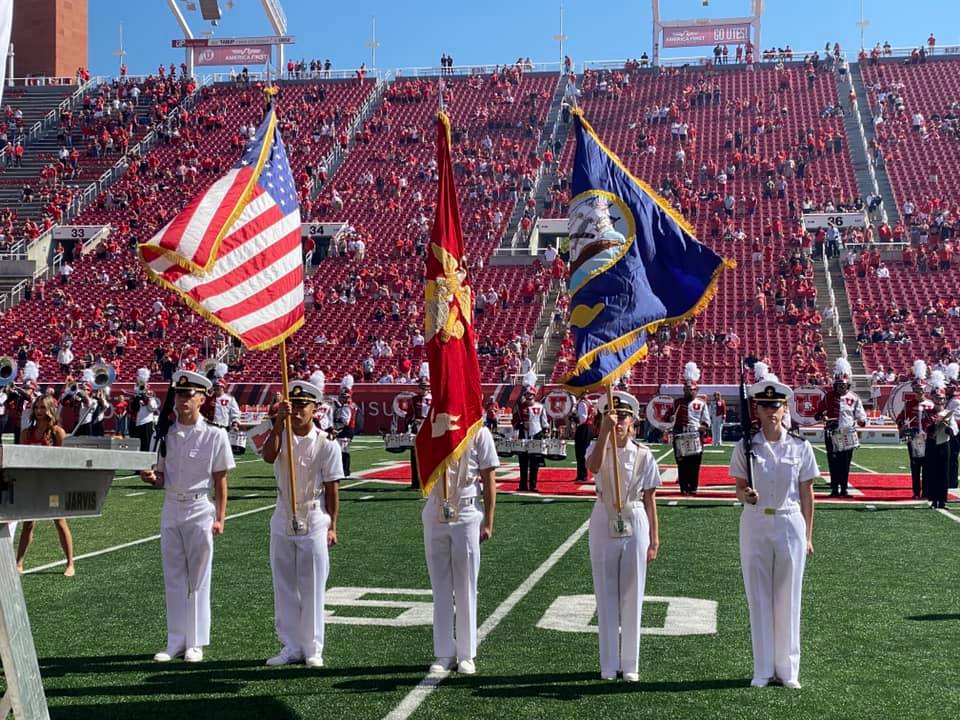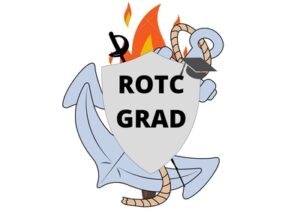
Introduction
Before I actually applied for the NROTC program, I didn’t know the first thing about how it worked. I knew there were several ways to enter the military but that was the extent of my knowledge. I thought that once I signed the papers, the rest would take care of itself. When I applied for the program, they told me a lot about how the Navy (and Marine Corps) would pay for all my tuition as long as I went to a school that had a reserve unit at or near campus (and then serve 4 years after graduation). I had no idea at the time what the rest would entail.
In short, was NROTC worth it?
NROTC is a fantastic option if you don’t have a way to pay for college and want to join the Navy or Marine Corps as an officer. While the program requires significant time commitments (20+ hours a week), you receive top notch leadership training and exposure to military career fields. This isn’t the only way to commission into the Navy or Marine Corps if the time commitment is too steep for you in college.
Top 4 Reasons to do NROTC for Navy or Marine Corps commissioning
You get some of the best quality training for leadership and management. You’ll spend four years not only studying for college, but also receiving military leadership classes on history, famous figures, and interesting case studies. The whole time, you’ll be under the supervision of the instructor staff- active duty military who are stationed at the unit specifically to train aspiring officers.
Every summer you’ll go on summer cruise training (usually ranging from 3-6 weeks). These trainings usually take place in San Diego and you’ll basically spend a week with each community in the Navy (Submarine, Surface ships, Marine, Aviation). My first summer, I got to ride on helicopters, T-34 planes, submarines, and shoot a lot of different weapon systems. The following summers vary based on what you tell your command you are interested in.
You receive full tuition coverage for any major you study. The Navy requires you to have a major on the tier list. But they will cover full costs no matter how much or little it is. The scholarship says up to $180,000, but that’s just to make it look super appealing in photos at scholarship events. Not every school will cover room and board. There’s a long list of schools that do, but the one I went to didn’t cover that. You’ll get a stipend that averages $1000 a year for books and misc expenses you may have (haircuts and dry cleaning you uniform).
You make friends, meet mentors, and have a social life through NROTC. My unit was really small and I didn’t always get along with my classmates, but bigger units = more people attending and better opportunity to make friends. I was the only Marine Option in my class but I made tons of friends after I went through OCS and beyond. I still stay in touch with some of the instructor staff from my unit and they’re always willing an able to give insight if I give them a call.
NROTC is the perfect place to practice leadership and develop yourself. You’ll be given some collateral duties at your NROTC unit as you progress. Some of these positions include being placed in charge of planning unit workouts, medical training (organizing staff and gathering instructors from local areas) and a wide variety of events. Through this you’ll be coached on how well you’re delegating tasks and organizing the event itself. There’s some more information on billets if you check out this article here.
Drawbacks to commissioning through NROTC
If you study a hard major like mechanical engineering or multi-variable calculus, you’ll be busy all week. This isn’t a bad thing if you love what you’re studying but I saw a lot of people at my unit take extremely hard majors in addition to their NROTC unit responsibilities. They rarely wanted to put in extra time to hangout, workout, or read a book. On the Marine side, we were allowed to study anything we wanted which means I had more free time to self-study and work on personal development.
Everyone has to fundraise for lab training. This was by far my least favorite part of the whole program. Any time there was a home football or basketball game we had to scan in everyone’s tickets at the gate until halftime. In turn, the university would pay our unit money so we could fund classes on martial arts, firefighting, leadership training, and guest speakers every Thursday.
You will feel like you’re being micromanaged time to time. The instructor staff treats you mostly with big boy rules, but every now and then they will nit pick a lot of things you do. Every long holiday, you will have to put in a leave chit to let them know where you’re going / who you’re staying with (this is how the real military does it) but it’s overkill sometimes since you don’t rate “leave days” in the first place.
You will have to show them your grades 2-3 times a semester and sometimes you don’t do well on a test which lowers your grade and doesn’t look good during the counseling meeting even if it’s temporary. If your GPA drops below a certain average you will be required to do mandatory study hall hours at the Naval Science building.
Sometimes the instructor staff creates a toxic environment. Like all organizations, the military has bad apples as well. This isn’t too common, but some units might have instructors that power trip students or make them feel worthless and that they’ll never make it through the program. There were a few of these at my unit but the good news is every couple years the staff rotates with another incoming staff so it won’t last forever. Additionally, you’ll take anonymous command climate surveys that go to the upper military every year which will address any instructor staff issues.
Advice for my past self (and anyone considering the NROTC program)
There is such thing as spending TOO MUCH time on NROTC responsibilities. I changed my major from computer science to geography so I could focus on my officer development and training towards OCS. I wouldn’t recommend this since your academics are still important and for your personal career goals. Make them accommodate your schedule while demonstrating you also care about being a good officer. You don’t have to be a Yes-Man and try to do everything to please your instructor staff.
Your major is still important. Afterall, they’re paying for your sc hooling.
Use the resources you’re eligible for. With the exception of Tri-Care, you’re eligible for tons of programs. My unit never told me this and I wish they did. If you have any college debt (like my wife did), you can use the Career Starter Loan which has a 2.99% interest (lower than student loans) and use that to pay off your debt. These payments are easy to make once you receive Ensign or 2ndLt pay. This is also great to use if you apply for NROTC after your freshmen year college to pay off the year before. If you get a scholarship, you’re eligible to get a military ID which allows you to enroll in various credit card companies and discount programs.
Final Thoughts
Overall, it’s a great program that has ups and downs. The program made me a better officer and prepared me better than I would have on my own. I learned tons of leadership and management skills with complex dynamics that can’t be replicated elsewhere. If you have any further questions or comments, feel free to reach out to me at theyouculture@gmail.com and I’ll do my best to respond. Thanks for reading!
